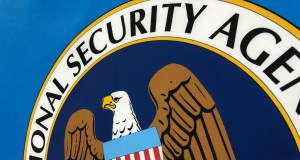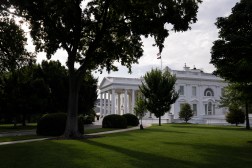The Obama administration today announced it will seek legislation to end the National Security Agency’s controversial bulk telephone metadata collection program.
The new plan will require private telephone companies to store the data and make it available to the government, when needed, in a usable format and in a timely manner. The plan would also allow the government to compel the companies to hand over the data without a court order in an emergency situation.
“Having carefully considered the available options, I have decided that the best path forward is that the government should not collect or hold this data in bulk,” President Barack Obama said in a statement accompanying the details of the plan. “Instead, the data should remain at the telephone companies for the length of time it currently does today. The government would obtain the data pursuant to individual orders from the Foreign Intelligence Surveillance Court approving the use of specific numbers for such queries, if a judge agrees based on national security concerns.”
NSA began its bulk metadata collection program shortly after the terrorist attacks of Sept. 11, 2001, under the legal authorities granted by Section 215 of the USA Patriot Act. But the disclosure of the program by former NSA contractor Edward Snowden has led to a firestorm of criticism by civil liberties, privacy advocates, and a growing number of lawmakers who have challenged the constitutionality of mass domestic surveillance.
Obama said he believes the new approach is the best way to ensure the government is able to access the information it needs to investigate and prevent potential terrorist attacks while providing the public more confidence that the government is not spying on the private communications of law-abiding citizens.
However, the program expires March 28 and must be reauthorized. The president has therefore directed the Justice Department to seek a 90-day reauthorization of the program as it currently exists so the government and the private sector can begin working on the details of the new data sharing and access architecture and procedures.
Other changes include limiting the government’s queries of the records to within two hops of the selection term being used. The court-approved numbers could then be used to query the data over a limited period of time without returning to the FISC for approval. The companies would be compelled by court order to provide technical assistance to ensure the records can be queried and that results are transmitted to the government in a usable format and in a timely manner.
“I am confident that this approach can provide our intelligence and law enforcement professionals the information they need to keep us safe while addressing the legitimate privacy concerns that have been raised,” Obama said.
Kevin Bankston, policy director of the Open Technology Institute at New America Foundation, characterized the administration’s announcement as a “relief,” but said the president doesn’t need the approval of Congress to end the program.
“This represents an enormous step in the debate over how much power the NSA should have to intrude into our lives, and is a strong repudiation of the agency’s ‘collect it all’ philosophy,” Bankston said. He also called on lawmakers to get behind surveillance reform legislation, such as the USA FREEDOM Act.
“The time has passed for half-measures that only address a small sliver of the NSA problem,” Bankston said. “The time has come for leaders in Congress to stop waiting to see what the president will do and instead move forward with the USA FREEDOM Act.”
Follow @DanielVerton






